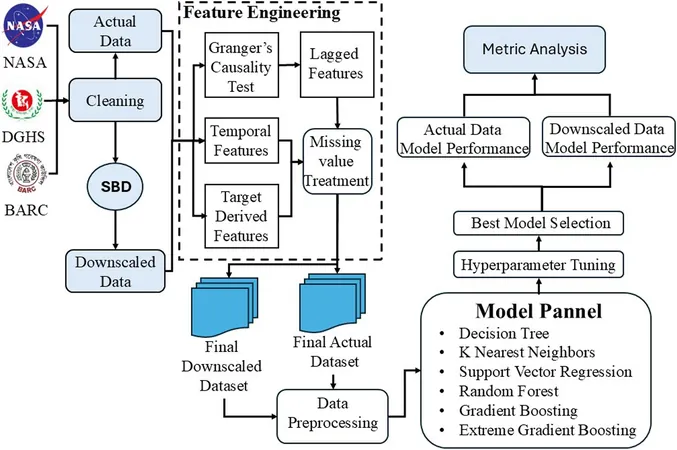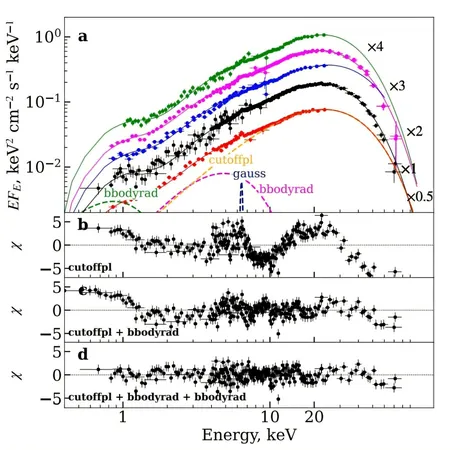
Revolutionizing Dengue Predictions: How Data Downscaling Enhances Forecasting Accuracy in Bangladesh
2025-05-27
Author: Mei
Dengue Fever: A Growing Concern
Dengue fever, an acute viral illness caused by the DENV virus and primarily spread by mosquitoes, is wreaking havoc on tropical and subtropical populations, impacting between 100 to 400 million people globally each year. Symptoms range from nausea and rash to severe complications like plasma leakage and circulatory collapse, with dengue shock syndrome posing fatal risks.
Currently, there’s no specific cure for this disease, and vaccines face obstacles due to the virus's four serotypes. Until a reliable vaccine is available, the best defense lies in eliminating infected Aedes mosquitoes and effectively predicting outbreaks.
The Challenge of Accurate Prediction
Predicting dengue cases is notoriously complex due to the interplay of numerous epidemiological and environmental factors. Outbreaks tend to follow seasonal patterns influenced by demographics, immunity, and climatic conditions.
Research indicates varying relationships between weather factors—like rainfall and temperature—and dengue cases. While some studies confirm positive associations, others report no link or even negative correlations. Additionally, factors such as humidity and even phenomena like El Niño have been implicated, revealing the intricacies of forecasting this disease.
Innovative Approaches to Forecasting
Various forecasting models, including Poisson regression, ARIMA, and machine learning algorithms like Support Vector Regression (SVR) and neural networks, have been applied to dengue predictions in Bangladesh. These models often rely heavily on traditional meteorological variables, which can restrict their predictive power.
Breaking New Ground with Data Downscaling
A groundbreaking new study seeks to bridge critical gaps by applying a dynamic forecasting pipeline that utilizes 13 meteorological variables within advanced machine learning (ML) models. Central to this study is the novel concept of data downscaling, which enhances model accuracy significantly.
Using the SBD (Synthetic Behavioral Data) algorithm to downscale data, this study achieves an impressive prediction accuracy of 95.85%, far exceeding previous efforts. Notably, predictions based on downscaled daily data marked a staggering 89.3% decrease in error compared to traditional monthly data.
Key Findings and Future Directions
The findings strongly support the hypothesis that data downscaling enhances ML model performance, opening doors for more precise dengue forecasting. This not only improves the quality of predictions but also has profound implications for public health interventions.
Such accuracy enables health authorities to prepare ahead of outbreak peaks, allowing for timely resource allocation and targeted mosquito control strategies.
Transforming Public Health Responses
By integrating these predictive models, Bangladesh can better implement proactive strategies for managing dengue outbreaks. Accurate forecasting can lead to effective larval source reduction and timely community outreach, drastically improving response effectiveness.
Overall, the research signifies a critical step towards improving management of vector-borne diseases, highlighting data-driven approaches as a cornerstone of public health capacity.
Conclusion: A New Era in Dengue Forecasting
As the world grapples with rising dengue cases, this revolutionary approach to data downscaling presents a robust framework for tackling this multifaceted health crisis. Institutional adoption of these predictive techniques could transform dengue surveillance and response, sculpting a more proactive and informed public health landscape.



 Brasil (PT)
Brasil (PT)
 Canada (EN)
Canada (EN)
 Chile (ES)
Chile (ES)
 Česko (CS)
Česko (CS)
 대한민국 (KO)
대한민국 (KO)
 España (ES)
España (ES)
 France (FR)
France (FR)
 Hong Kong (EN)
Hong Kong (EN)
 Italia (IT)
Italia (IT)
 日本 (JA)
日本 (JA)
 Magyarország (HU)
Magyarország (HU)
 Norge (NO)
Norge (NO)
 Polska (PL)
Polska (PL)
 Schweiz (DE)
Schweiz (DE)
 Singapore (EN)
Singapore (EN)
 Sverige (SV)
Sverige (SV)
 Suomi (FI)
Suomi (FI)
 Türkiye (TR)
Türkiye (TR)
 الإمارات العربية المتحدة (AR)
الإمارات العربية المتحدة (AR)